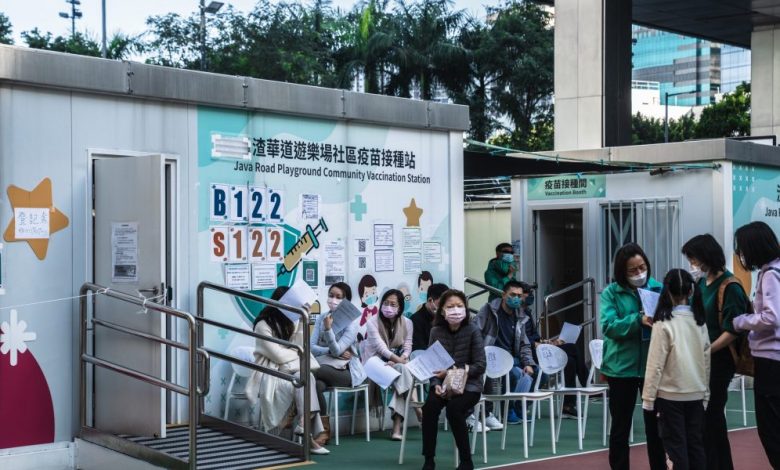BioNTech’s Chinese partner lets Mainland Chinese book mRNA-COVID injections in Hong Kong

BioNTech SE’s Chinese partner has started allowing mainland Chinese to register for its mRNA-COVID-19 vaccine in Hong Kong before the border reopens early next month, which could spark a wave of visitors to the financial hub.
Shanghai Fosun Pharmaceutical Group Co. allows people to register for enrollment through its app and online, with the company asking users for their personal information and whether they have recently recovered from COVID. Fosun, which distributes the Pfizer-BioNTech vaccine in Hong Kong, Macau and Taiwan, did not respond to Bloomberg News’ email request for more details about the program.
While the mRNA shot has formed the backbone of COVID vaccination campaigns around the world, it remains in regulatory limbo in mainland China, which has not given it the green light, instead relying on domestic vaccines for its 1.4 billion people. China is grappling with the world’s largest outbreak – the country’s health agency estimated nearly 37 million people could have been infected in a single day last week – after the rapid dismantling of COVID-zero restrictions led to a spike in virus cases.
The big flare-up has sparked a push to vaccinate vulnerable older people, but could also increase interest in getting vaccinated when travelling. Some mainland Chinese residents received an mRNA shot in Macau, the only place they could travel to without being quarantined on their return. Visitors would have to pay out of pocket, with the Financial Times reporting that a couple paid $170 each for a dose.
Expectations are growing that Hong Kong could see a surge in visitors from China starting Jan. 8, when the mainland lifts all quarantines on inbound travelers, resumes issuing Hong Kong travel permits and reopens express checkpoints on its borders with the financial hub picks up. Still, it’s unclear how many might be eligible for vaccination given the surge in cases on the mainland, with health officials recommending people wait six months after being infected for their next vaccination.
The Hong Kong government said last week that residents will receive the bivalent vaccine free of charge as a priority, while non-residents will still be entitled to the free parent vaccine and the non-mRNA CoronaVac shot. Some non-residents who meet certain requirements may also be able to get the bivalent vaccine for free. Non-residents can also get vaccinated at private doctors, clinics and hospitals.
Fosun Pharm this month shipped 11,500 doses of the mRNA vaccine to be given exclusively to German expatriates in China, under a deal brokered during German Chancellor Olaf Scholz’s visit to China in early November. It’s unclear when or if the shot will be approved for wider use in China.
Our new weekly Impact Report newsletter explores how ESG news and trends are shaping the roles and responsibilities of today’s leaders. Subscribe here.



